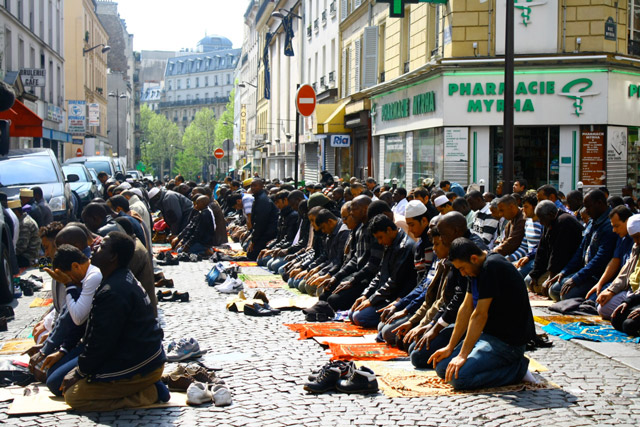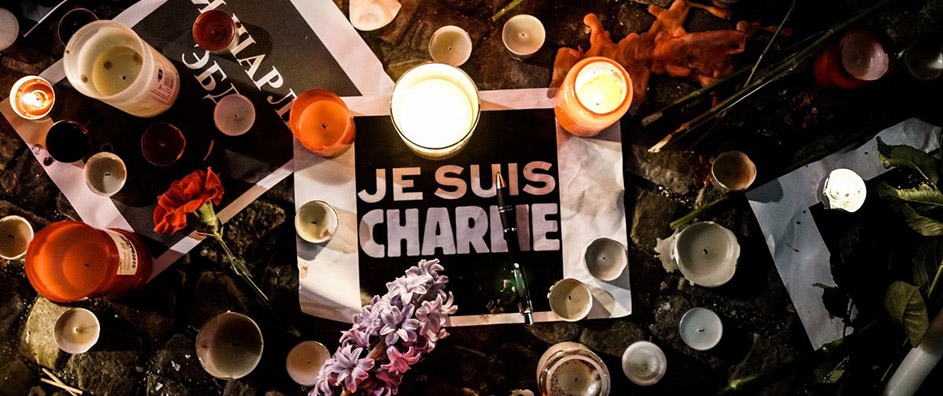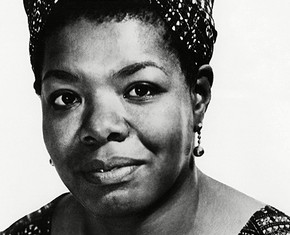The views expressed in our content reflect individual perspectives and do not represent the authoritative views of the Baha'i Faith.
In the aftermath of the French terror attacks, I’ve spent some time reflecting on the amount of attention the news media has paid to “freedom of speech” and “the dangers of religious extremism.”
While both of these important angles of this sad story strike me as worthy of deep discussion, I would like to visit this tragedy from a somewhat related, yet different angle: what caused individuals who were French citizens, who grew up in that country, who, based on news accounts, had girlfriends, rapped and smoked pot until a few years ago, to become extremist terrorists? When this happens, what about the responsibilities of various factions of society–ranging from governments, educators, community and religious leaders and individuals–to resolve this widely spreading, worldwide problem of fundamentalist terror? How can we stop the causes of terror, rather than bemoaning the outcomes after they’ve already occurred?
Of course we will never really know the answers to these important questions from the point of view of the individuals involved—they can no longer tell us. But we can speculate a bit, and reach some general conclusions. As someone born in Iran and transplanted to the United States in my youth, I have some thoughts about the answers to those questions.

Myrha Street is part of the Arab/African immigrant quarter of Paris and is barricaded on Fridays to allow Muslims to pray in the street
In the case of the three French citizens who committed these heinous terror attacks, we know they lived in a minority community in France, an “Arab ghetto,” as some describe it. The people in those areas report feeling slighted, ignored, discriminated against and not accepted by mainstream society. Many researchers have concluded that these issues, paired with the Muslim community not having fully assimilated in French society, have become serious problems in France, contributing to the violence and terror now plaguing the nation.
These three terrorists, from marginalized and socially-unaccepted backgrounds, likely had poor educational opportunities. As they grew up one or more of them accumulated criminal records and spent time in jails. There, at least one met older and more hardened violent criminals who could indoctrinate and train them in a violent brand of “Islamic” terror—which has nothing to do with the actual practice of the religion of Islam.
Just like in many other societies, these young men may have developed rage and hatred against the community they felt treated them like second-class citizens. And while they apparently had no political or “religious” convictions until just a few years ago, their radical extremism obviously provided an outlet for their hatred and anger, gave them feelings of self-worth and exaggerated importance, exploited their lack of education and trained them for violent, suicidal vengeance.
This is not a new phenomenon in human history. Murderous criminal gangs have formed in many societies for the same reasons, among groups who have suffered from discrimination, have not been accepted as equal, have not integrated, and have not been well-educated. Until societies fully accept, assimilate and build unity with their minority populations, we will continue to suffer from this problem.
How can governments, community and religious leaders and educators, in places where people of various backgrounds live, resolve these serious issues and create unified societies? Simply, residents of countries with diverse populations, regardless of whether they are part of the greater majority or a minority, would do well to participate in a broad program of nationwide diversity training. We all need to learn about and appreciate the beauty in various cultures. The Baha’i Faith teaches that unity in diversity is possible, if we can come together as equals in a respectful and loving way. The world of humanity, according to the Baha’i writings, resembles a garden filled with flowers of different colors and scents. Wouldn’t it be wonderful if we appreciated all of them? Wouldn’t it be amazing if people of different cultures felt as comfortable associating with other cultures as with their own?
I offer the worldwide Baha’i community as an example, a community which embraces individuals from any ethnicity, race, nation or religious background you can imagine. Put them all in one place and you’ll see the flowers of one garden, you’ll see the members of one human family associating with each other in the utmost harmony.
Finally, what responsibility do individuals–or better yet minority communities who are treated like second-class citizens—have in all this? Should they encourage feelings of anger, hatred and vengeance in the members of these marginalized communities? Has this kind of anger, or the actions resulting from it, resolved many problems throughout history?
We can learn a great deal from the example of Baha’is of Iran—persecuted; executed; imprisoned; discriminated against; considered as second-class citizens; fired from their jobs; their sacred sites bulldozed, expropriated and destroyed; deprived of higher education; and stripped of their basic human rights for the past 36 years. How have they reacted to all these ongoing human rights atrocities?
Those who were given the choice to recant their faith or be executed lost their lives. Those imprisoned for bogus, trumped-up accusations have formed bonds of friendship and understanding with other prisoners of conscience, and work to promote and broker peace among different groups in prison. Teachers and professors fired from their jobs created a virtual university for thousands of Baha’i youth, who have been deprived of higher education as a result of the government’s persecution.
In the face of all the untrue and unfair accusations, the Baha’is have never spread hatred or violence against anyone or any group in Iran. Despite the brutal treatment they’ve suffered, they have concluded that hatred stops with them. Of course, because of the utmost importance of justice in the Baha’i teachings, they have systematically and regularly taken their case to international human rights organizations, and brought the injustices to the attention of the world.
Overall, the Baha’is of Iran continue to serve their fellow citizens and to work toward the betterment of their beloved country. I call this method of dealing with oppression constructive or peaceful resistance. Hopefully, more leaders of thought will study the case of the Baha’i Community of Iran, as a successful example of constructive resistance—and hopefully, more people in the world will realize the only way out of this miserable cycle of hatred and vengeance is education for peace!
You May Also Like
Comments

















Thanks for sharing!